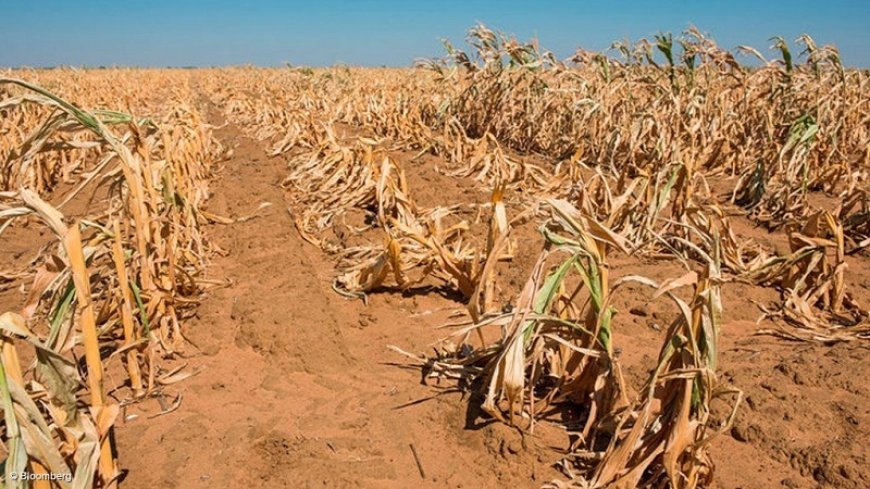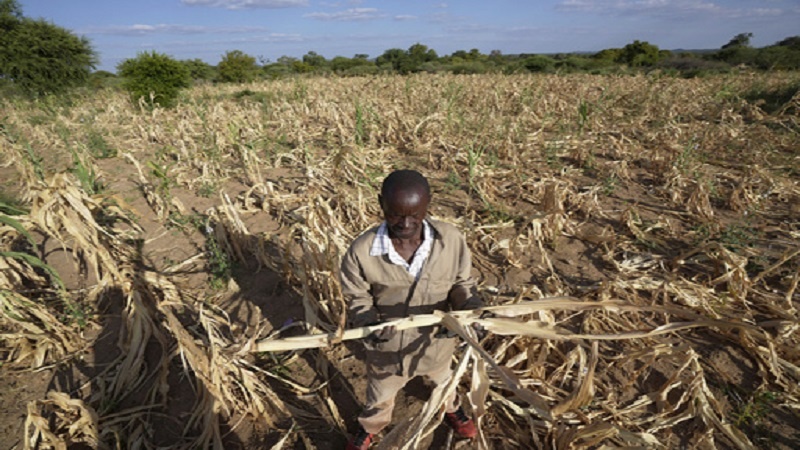The extreme drought in southern Africa has caused hunger for millions of people
The World Food Program (WFP) has announced that the drought affecting Zimbabwe and its neighbors Zambia and Malawi has reached dangerous levels. Zambia and Malawi have already declared that they are facing national disasters. Drought has also affected Mozambique and Madagascar to the east.

Last year, many areas in southern Africa were hit by severe tropical storms and floods. It is climate change that scientists say is increasing and causing more damage to vulnerable people.
The WFP organization has said that it intends to provide aid to 2.7 million people in rural areas in Zimbabwe who are threatened with hunger because of the drought that affected many areas of the southern African continent since last year.
A citizen of Zimbabwe by the name of Ncube has said that and here I am quoting him "We have nothing in the fields, not even a single grain," Everything has been burnt by the drought."

At the same time, the United Nations Children's Fund (UNICEF) has explained that there are overlapping disasters of bad weather in eastern and southern Africa, where last year the two areas were affected by storms, floods, heat and drought.
Unicef has added that in southern Africa, an estimated 9 million people, half of them children, need help in Malawi. In addition, more than 6 million people in Zambia, 3 million of whom are children, have been affected by the drought.
Kenyan senators have demanded that government officials who allowed fake fertilizers to enter the country and into the warehouses of the Cereals and Crops Board (NCPB) should be brought to court.
It is after the Senate of Kenya ordered ministers Mithika Linturi (Agriculture), Rebecca Miano (Trade) and officials of the Kenya Product Quality Inspection Board (Kebs) to appear before it for questioning, related to the sale and distribution of fake fertilizers in the country in it.
The senators also want the relevant officials, if found guilty, to return the money to the farmers who bought the fertilizer.
Due to the saga, hundreds of farmers have complained of losing thousands of money after being sold fake fertilizers.
The Chairman of the Senate Committee on Agriculture, James Murango, has said that they have started an investigation on how the fake fertilizer entered the country while highlighting the Organization that manages Quality Standards in the Country (Kebs) and the National Trade Organization (KNTC).
"The cry of fake fertilizer has reached us. As the Senate Committee on Agriculture, we want to investigate to find out if there is sabotage. If it is sabotage, then how did the fertilizer reach the NCPB warehouses? We want to know how Kebs had no information that fake fertilizers were being distributed to farmers," said Mr Murango.
The senator has argued that the main question is how the fertilizer was able to penetrate into the NCPB warehouses owned by the government without being detected.
Senator Murango has said: "It is sad that many farmers discover the problem after buying fertilizer. They open the bags and find sand, donkey excrement and stones."













































